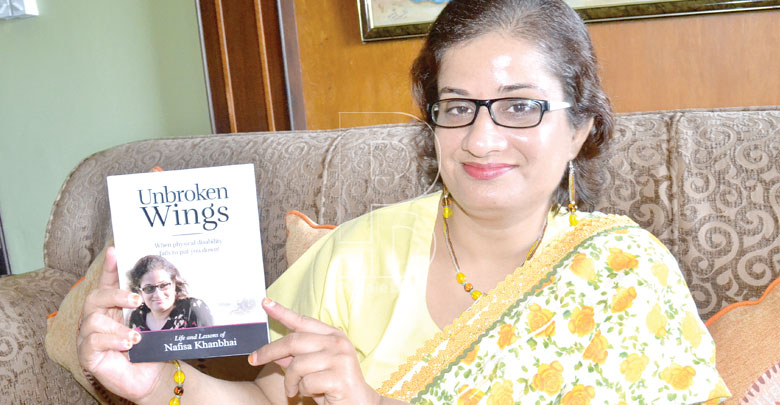Health: Khanbhai’s cracked spine spina bifida needs urgent surgery
By Jasmine Atieno, August 6, 2019As Fatema Khanbhai waited for her husband to pick her and their newborn daughter from the Agha Khan Hospital Mombasa, she noticed her doctor’s worried expressions.
There was definitely a problem; but the doctor couldn’t give her any information. So she just hoped and prayed her daughter, Nafisa Khanbhai, was okay.
Later, the doctor informed her husband that their daughter’s spine was cracked above her hip area. Her condition, he was told, was called spina bifida, and she needed urgent surgery.
Spina bifida is a condition in which the bones in the vertebral column do not fully cover the spinal cord, leaving it exposed.
It is a congenital problem caused by the incomplete closing of the embryonic neural tube. The neural tube is the embryonic precursor to the central nervous system, which is made up of the brain and spinal cord. Neural tube closure usually occurs by the fourth week of pregnancy (28th day after conception).
When the neural tube does not close completely, a neural tube defect develops. Treatment include surgery to seal the gap, although such treatment does not always completely resolve the problem.
Rough beginning
Baby Nafisa underwent surgery and her parents took her home. They just hoped that with the operation, their daughter would be fine, though they knew the journey would not be easy. The doctors had confirmed that she would use crutches all her life.
At the age of three, Nafisa was enrolled into Alibhai Panju School. “It was not easy. I think school was the most challenging part of my life. I was not part of activities such as physical education.
I was bullied and barely made friends with other children. Then my mother would come to school and change my diapers every break time because I could not control my bladder,” says Nafisa.
Adolescence was not easy either. For instance, when she received her monthly periods at the age of nine, she had to stay at home for a whole week because she did not understand what was happening to her.
When she was diagnosed with spina bifida, doctors had mentioned the likelihood of starting this process at an earlier-than-normal age. So her parents were prepared. Her mother explained over and over what was happening to her body.
However, at the same age, her kidneys failed and her surgery had to be delayed due to lack of finances.With all these hardships, the urge to continue with her education just disappeared. She gave up on school after sitting for her Kenya Certificate of Primary Education (KCPE) exams in 1989. But definitely not with life.
Turning point
The following year, Nafisa joined Leo Club, Mombasa where she got to meet other people who had different challenges. This encouraged her that she was not alone. In the same year, she visited England in the company of her mother.
She was surprised at how the society there embraced people with disabilities. This was the birth of her new energy. Watering the grass at home so it’s not just green on the other side.
“I was amazed, it was a different world where everybody was important and considered. I wanted home to be the same. Where we would have facilities that catered for physically challenged to make them feel comfortable as members of the society too. An all inclusive society,” says Nafisa.
For her, it is not just about giving handouts to people living with disabilities people, it is also about providing them with means to which they can be able to sustain themselves.
Nafisa feels happy and fulfilled having done more than 23 years of humanity work. Though doctors told her she cannot conceive, she has found love in running an orphanage with over 35 children. The orphanage is sustained by a coconut oil business, which she taught the children to make.
The 43-year-old has also written her biography, Unbroken Wings. Being born with spina bifida had to some level given her new wings, made her stronger and she has soared above all her problems not only for herself, but for others who had similar or even bigger problems.
“If I was born normal like everybody else, I probably would never have achieved the things I have today. I probably would be taking care of my children and husband.
But I don’t feel like I am missing out because I am taking care of 35 children and helping other people too. My book has reached many people and touched many lives. So yes, I am happy and find satisfaction in how my life has turned out to be,” she says amidst laughter.
